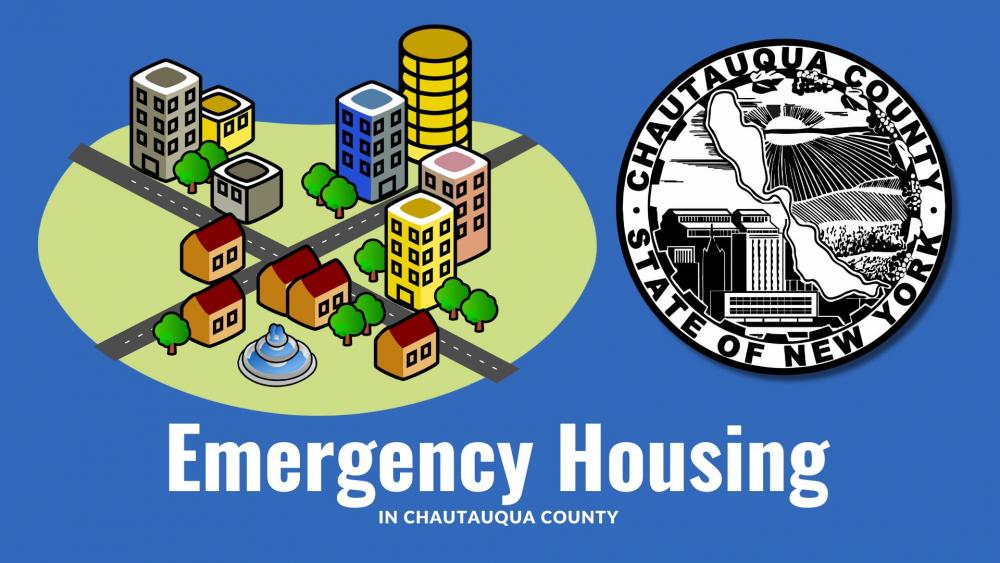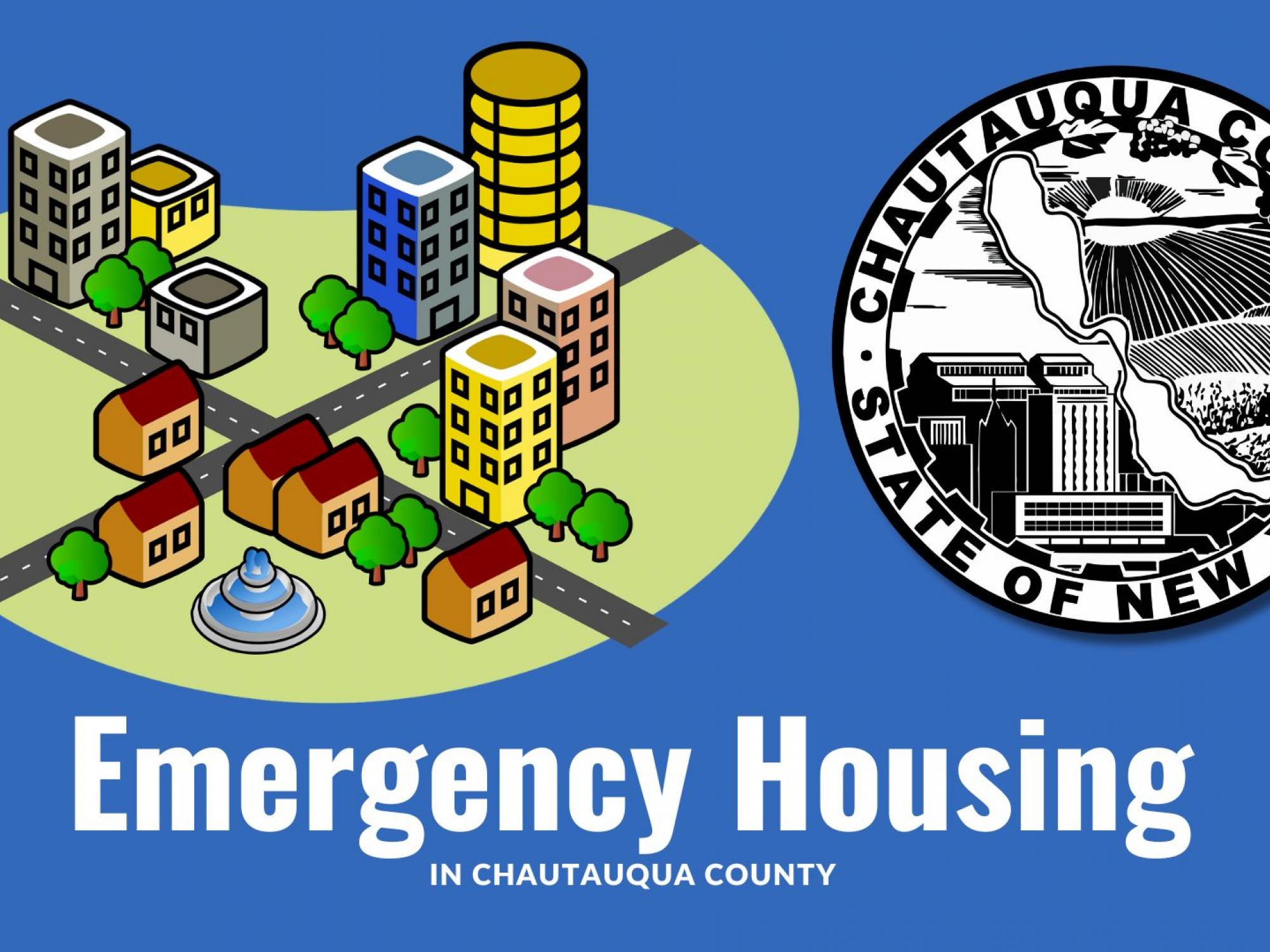
FALCONER, NY – Additional mental health resources, paired with community support and quality housing, is key to decreasing the burden on Emergency Housing in Chautauqua County.
According to Chautauqua County’s Director of Mental Hygiene and Social Services, reports of increased crime and disturbances surrounding Emergency Housing Hotels, like the Budget Inn in Falconer, NY, are likely tied to a rise in substance abuse and mental health issues.
“These disorders go hand in hand,” explained Carmelo Hernandez, Director of Mental Hygiene and Social Services. “A lot of these folks falling on hard times likely suffer from both mental health and substance abuse issues.”
In the late 2000s, the Budget Inn agreed to serve as an Emergency Housing point for Chautauqua County and with other counties in New York State, including nearby Cattaraugus County, utilizing the location. Recently, both local leaders and residents in the Village of Falconer voiced concerns with a rise in increased crime and disturbances surrounding the Motel.
“For several years the Budget Inn has been willing to receive individuals in need,” explained Jon Anderson, Chautauqua County’s Deputy Commissioner of Social Services. “It can be difficult for facilities to agree to accept this vulnerable population. For emergency shelter, we place those in need at any facility willing to work with us.”
While no one in need will be turned away, an individual applying for emergency shelter must complete an application to determine assistance eligibility. There are requirements for maintaining on-going eligibility for assistance.
The County’s Department of Social Services routinely seeks new hotels and other accommodations to see if they'd be willing to support and expand emergency shelter capacities.
“The number of homeless has greatly increased post-pandemic, with increased rent and costs forcing many on to the street,” continued Anderson. “The limited supply of affordable housing and the low shelter allowance make it very difficult for many people to exit emergency assistance shelter to permanent stable housing.”
New York State’s shelter allowance has not been updated for households with families since 2003. According to the Empire Justice Center, the current shelter allowance for a family of three with children ranges from a low $259 dollars a month to $447 dollars a month.
These amounts, officials argue, are not enough to cover the cost of any habitable rental unit in New York, falling hundreds of dollars below what the United States Department of Housing and Urban Development has determined to be fair market rents for our region.
“Transitional housing is an issue, it's been an issue for many years,” explained Chautauqua County Sheriff James Quattrone. “It's among our biggest concerns when releasing people from the Chautauqua County Jail. I agree that stable housing, combined with the right resources, is fundamental to our community’s success.”
Over time, the County’s goal is to move away from hotel use toward expanded shelters. Chautauqua County is working with the area’s Homeless Collation to identify priority areas.
“While a motel like the Budget Inn provides immediate public shelter, a long term structured support is vital to successes,” said Hernandez. “Emergency Housing, transition housing, supportive housing and affordable housing is key. We need to have professionals on site to assist those in need providing a continuum of care vs. just satisfying an emergency need.”
Permanent supportive housing pairs affordable housing with case management and supportive services, which have been shown to not only help people experiencing chronic homelessness to achieve long-term housing stability, but also, improve their health and wellbeing.
According to the National Alliance to End Homelessness, a chronically homeless person costs the tax payer an average of $35,579 dollars per year. In 2022, $1.36 million dollars was spent on Temporary Housing in Chautauqua County, up from $636,000 in 2021. Of the 2022 spending, $290,000 was paid to the Budget Inn for Temporary Housing services.
Costs on average are reduced by 49.5 percent when homeless are placed in supportive housing. Supporting housing, the Alliance reports, costs on average $12,800 dollars, making the net savings roughly $4,800 per year.
The total number of homeless, and those at risk of homelessness, greatly increased post-pandemic in Chautauqua County, with Chautauqua Opportunities Inc. reporting from over 800 individuals in 2020, over 1,000 in 2021, to now nearly 1,500 in 2022.
“Homelessness is a pervasive social issue found not just in Chautauqua County, but throughout New York State and across our nation,” said Chautauqua County Executive PJ Wendel. “No one person, group or agency can solve this alone. As a community, we must come together to find solutions.”
In the end, County Executive Wendel says Social Services is an agency of last resort, but yet, cannot solve all issues or problems.
“We need leaders at all levels, federal, state and local, to join forces with residents throughout our community to come together for a common good and help those in need,” continued Wendel. “As County Executive, I will remain committed to further expand resources from our Department of Mental Hygiene and Social Services to help our friends and neighbors overcome obstacles, get back on their feet and build a better life here in Chautauqua County.”









